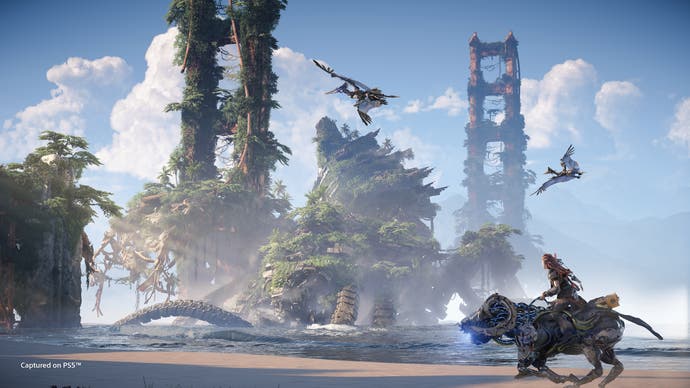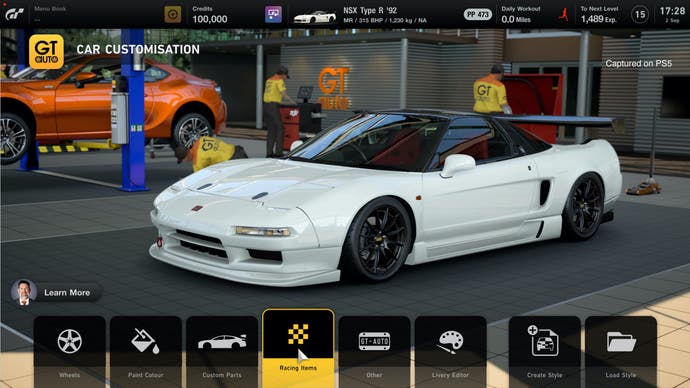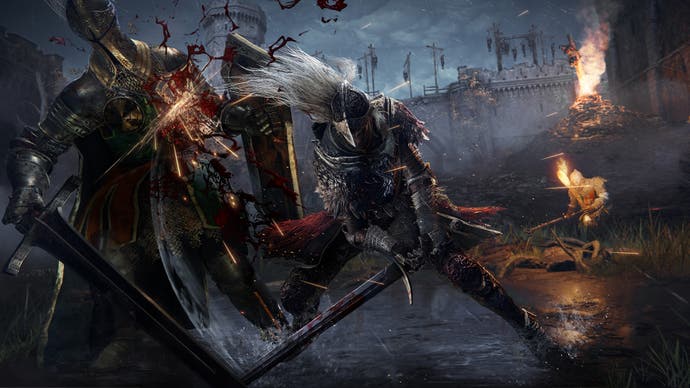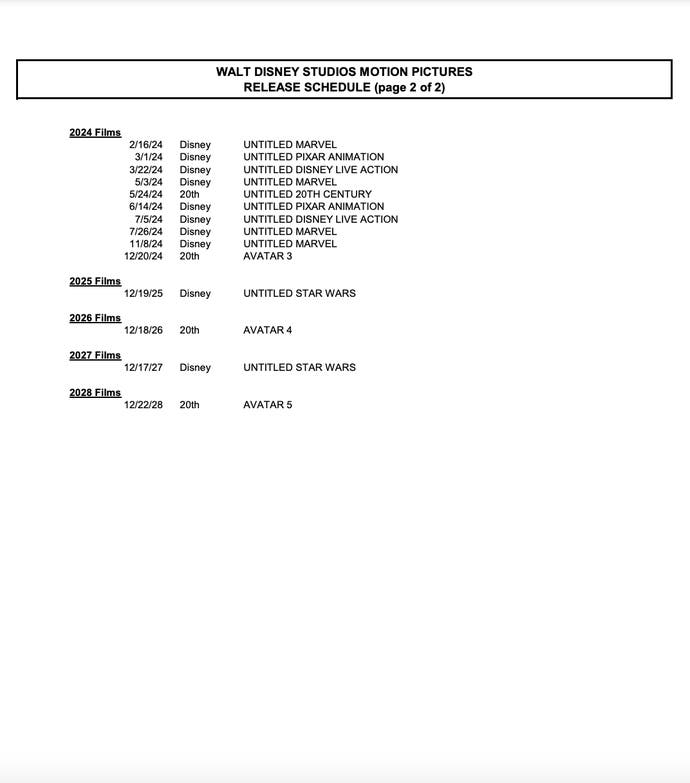Letter from the Editor: Feast and famine
The only thing worse than not enough games is too many of them. Or is it?
Letter from the Editor is a new monthly column from our editor - a bit like the editorial on the first page of a magazine! - that's exclusive to all Eurogamer supporters.
In a way, this month's column is an extension of what I talked about in the first letter last month: what constitutes a busy release schedule and what doesn't. Back then, I was musing on the contrast between 2021's meagre lineup of big releases and the parade of positive reviews of mostly smaller games we have run recently. (Indeed, in the weeks since I wrote that, we've added two more Essentials and Stephen Totilo's Axios Gaming newsletter did us the honour of undertaking a statistical analysis of our reviewing - complete with graph! - pointing out that we've equalled 2020's tally of Essentials with fewer games reviewed overall and two months still to go in the year.)
What's on my mind this month is something rather more concrete: those pain points, if pain is an appropriate word, that happen when a glut of new releases pile on top of each other. Right now, quiet year or not, we're starting down the barrel of a frantic fortnight in early November. It kicks off with the new Call of Duty and a major Animal Crossing update on the same day; then - in the space of a week - we get Football Manager 22, Forza Horizon 5, two major re-releases on the same day (GTA Trilogy and Skyrim Anniversary Edition), the Elden Ring public test and Shin Megami Tensei 5; and just one week later, new Battlefield and Pokémon games.
If that sounds bad (or good!), then allow me to introduce you to February 2022. After Elden Ring's short delay, it now looks like this: Dying Light 2, Horizon: Forbidden West, a Destiny 2 expansion, Elden Ring and the Saints Row reboot on the same day to finish the month, and Gran Turismo 7 in the first week of March as a chaser. Oh, so that's where all 2021's big games went.




Moments like these are exciting of course, but for those of us covering games professionally they cause a degree of groaning and eye-rolling. Video games can be big, unwieldy things that take dozens of hours to play, and covering these games can be a sprawling undertaking too, involving multiple members of staff, with a review, videos, guides and tech coverage to marshall and schedule. A consideration in recent years is that a major update to a popular live game can be just as significant as a new release; the upcoming Animal Crossing update could revive interest in what was arguably 2020's biggest game, while the changes to Warzone will probably be more newsworthy than anything that's actually in the main Call of Duty: Vanguard package. When releases pile up like this, things get very hectic for us, and though there's an undeniable buzz to it, we could be forgiven for wanting to spread the workload - and the web traffic - around a little bit.
What I find myself wondering is if anyone outside the games journalism profession feels the same, or whether this is just a world's-smallest-violin moment for people lucky enough to be in our line of work. You'd have to be a player of uncommon commitment and resources to be able to play all this stuff the moment it's released - and one of extremely broad tastes to want to. Are Football Manager and Shin Megami Tensei appealing to the same audience in any sense at all? On a purely personal level, as a player, I know that I only have eyes for Forza this month, while early next year I will be choosing between spending my time on Elden Ring or Gran Turismo 7 and forget the rest (though that is still quite the choice). So what does it matter?
I do think it matters a bit. Whilst it's true that real-world players tend to focus on just one or two titles for weeks or months at a time, and game communities are quite hermetic, the games industry could do with being more aware of the communal noise it's making. It's natural for the release schedule to have an annual rhythm: I enjoy the Q4 buzz as much as anyone, and it's good for smaller games to have quieter periods to release into. But such extreme compression of the calendar into two or three critical weeks, two or three times a year, makes things feel chaotic and disorganised and inevitably sets some titles up for a needless fall. (Saints Row looks fun, but it's no Elden Ring on the hype scale, and you can be sure that will be reflected in the press coverage both games get.)


The obvious comparison is with the film industry, where the physical constraints of distribution - there are only so many cinema screens to go around - force studios to carefully plot their calendars years in advance, sometimes reserving spots without knowing which film will be occupying them. There are still highs and lows through the year - blockbusters and teen horror films in summer, Oscar contenders in autumn, garbage in February - and there's still room for aggressive competition as well as gentlemen's agreements to stay out of each other's way. But everyone knows what they're doing, and the trains don't collide in the station unless someone really wants them to.
Games will never have these kinds of formal constraints, so perhaps that level of organisation is too much to hope for. By the same token, though, why do we still have to have a mad rush before Christmas (or is it Black Friday) every year - not to mention before the end of certain publishers' financial years in March and May? For most players these are arbitrary deadlines, and the games themselves are not always well served by them at all. A little more cooperation could go a long way.





-3-31-23-screenshot.png?width=291&height=164&fit=crop&quality=80&format=jpg&auto=webp)



